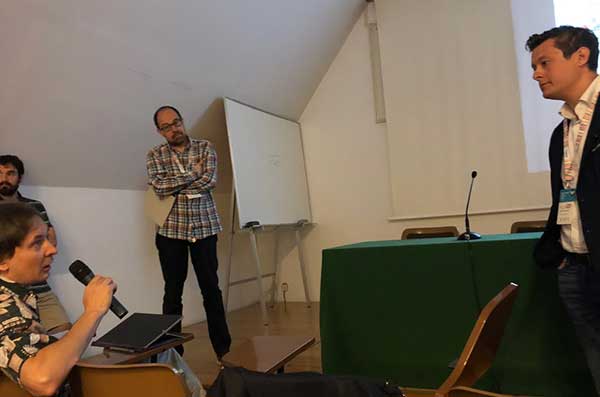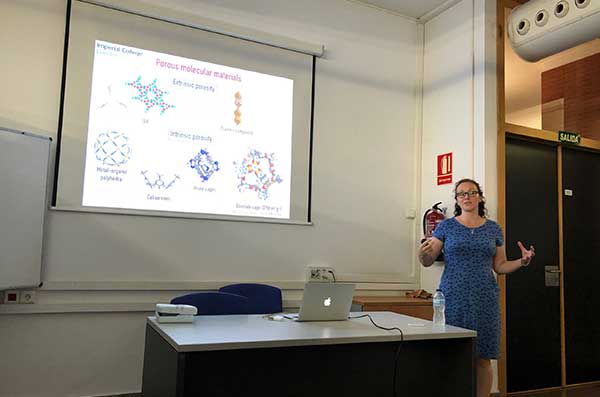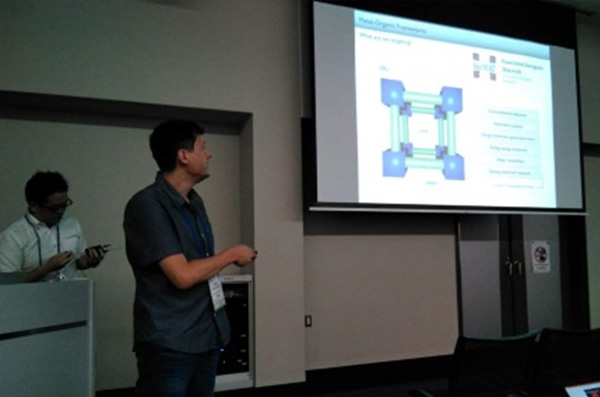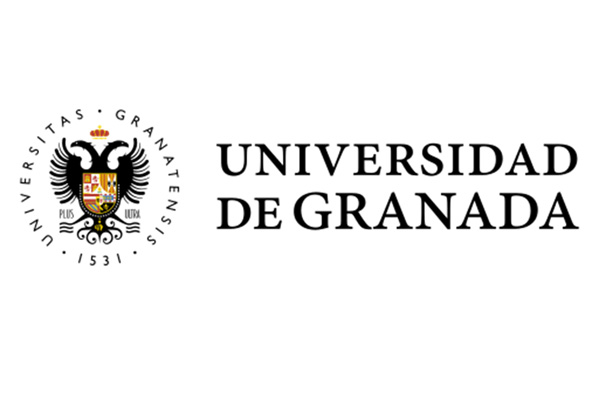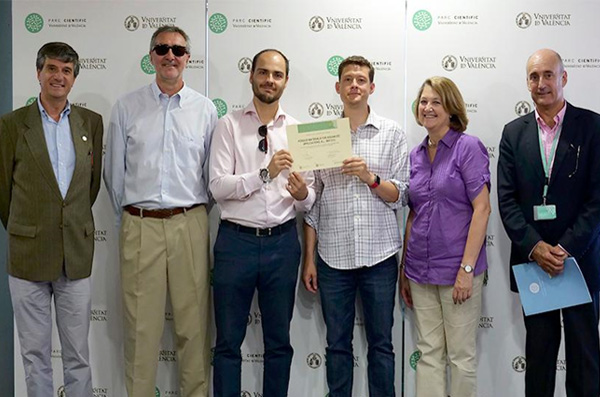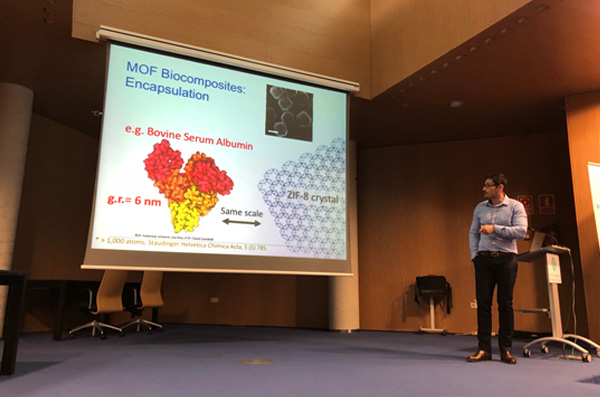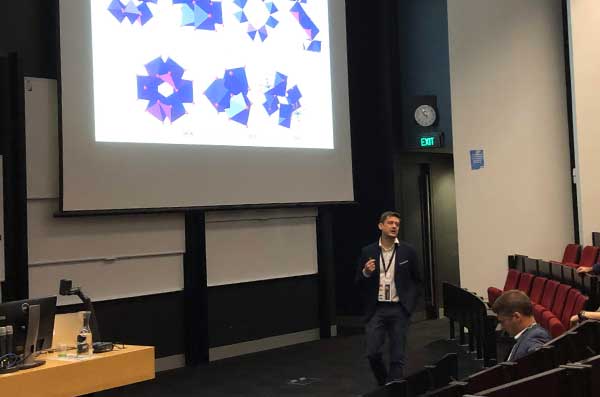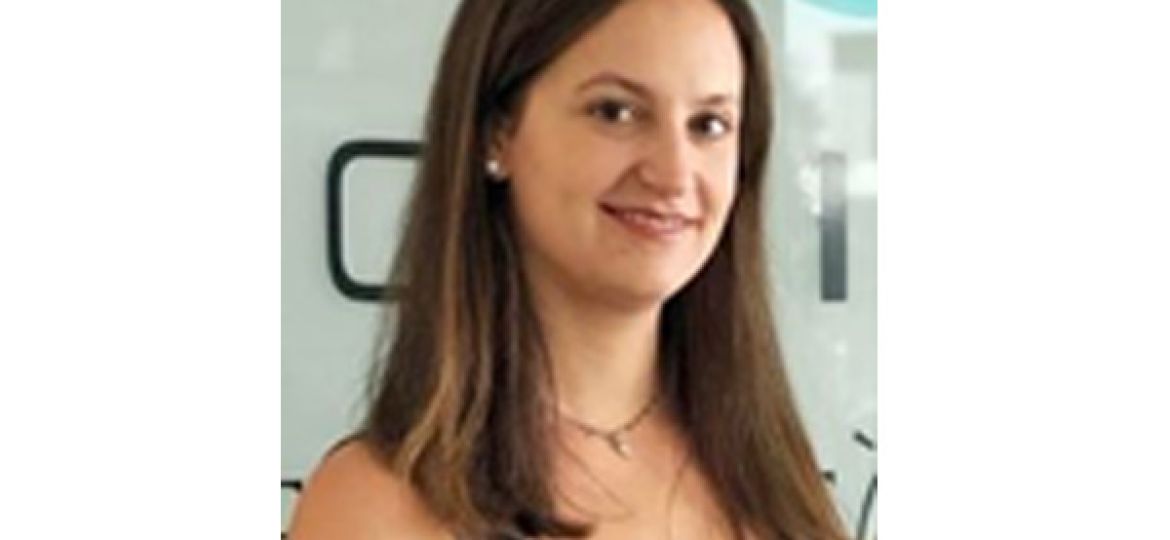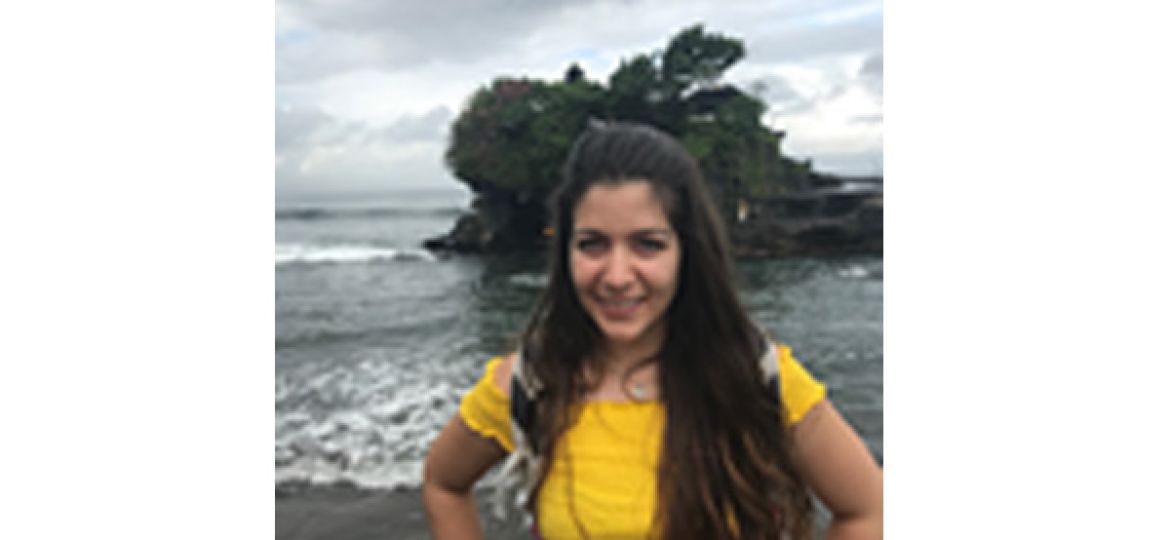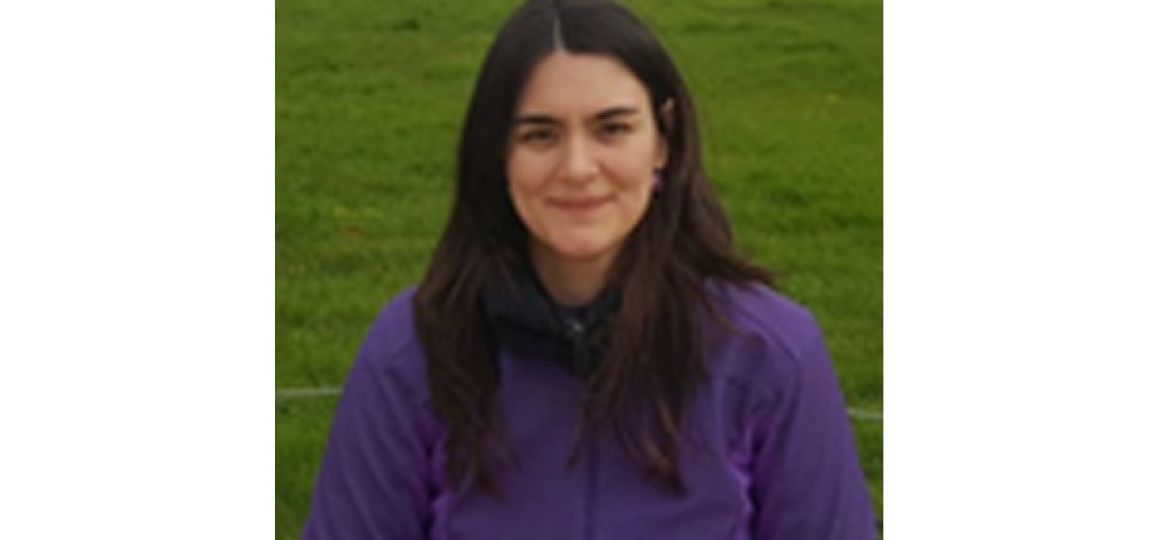FuniMAT was present at the International Symposium Polymat-Spotlight devoted to 2D and Porous Polymers. Carlos delivered a keynote lecture on Charge Transport in Ultrathin films of Metal-Organic Frameworks
Kim Jelfs (Imperial College of London) and Martijn Zwijnenburg (University College London) visited us to lecture on the recent advances of their teams on the modelling of porous cages and high-throughput screening pf polymer photocatalysts. We are hopeful this will initiate a fruitful collaboration between both groups.
MOF ultrathin films. Victor presented our recent work on spin-crossover materials at the nanoscale. For more details see here
Carlos visited the Universidad de Granada (Prof. Jorge A. R. Navarro) to present our research on lateral and vertical charge-transport in ultrathin MOF films.
With the help of the venture fund BeABLE Capital, Carlos has founded Porous Materials and Advanced Applications, S.L. The company has been certified as spin-off of the Universidad the Valencia and right after its birth has been recognized with the VLC Start Up award organised by the Parc Científic.
Prof. Christian Doonan from University of Adelaide visited us to lecture on the recent advances of his team on the potential of MOF biocomposites for application to industrial, heterogeneous and biocatalysis. We are hopeful this will initiate a fruitful collaboration between both groups.
Funimat was very well represented at the Novel Porous Materials Symposium held in Australia and the 6th International Conference on Metal-Organic Frameworks and Open Framework Compounds held in New Zealand. Carlos and Natalia presented our last results in Titanium Organic-Frameworks. For more details see here
Montaña earned a Ph.D. in Chemical Engineering in 2018 at the Universidad de Salamanca. As the Chief Technical Officer of Porous Materials for Advanced Applications, S.L. she will be responsible for the implementation of new methodologies for upscaling the synthesis of the most relevant materials produced @FuniMAT.
Isabel was born in Guadalajara and earned his Ph.D. in 2018, working in the group of Ross Forgan at the University of Glasgow. She will be exploring new methodologies for controlling the role of defects over structure and reactivity in MOFs.
Elena is originally from Salamanca. She joins the force with a Juan de la Cierva Formación Fellowship after a Postdoc stay in Versailles. She will approach new strategies for cooperative catalysis in porous materials.

